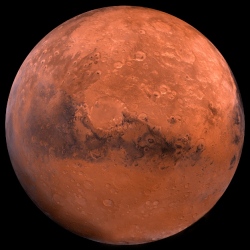
The satellite Europe will be sending to Mars early next year is to undergo its final tests. The Trace Gas Orbiter (TGO) will study the atmosphere, and drop a demonstration lander on to the surface to gain knowhow for a rover mission touchdown in 2019. Engineers at Thales Alenia Space (TAS) in Cannes have led the construction of the spacecraft.
Russia, Europe’s partner on the project, will handle the launch. This will be done on a Proton rocket from Baikonur in Kazakhstan in January. The transit to Mars will take about nine months.
The TAS engineers are in the process of joining the descent module, known as Schiaparelli, to the TGO. Vincenzo Giorgio, the company’s director of science programmes, explained: "They’ll then go for shaking – some mechanical tests – and then into the thermal-vacuum chamber. After that, there will be some additional end-to-end testing, before we ship out this summer."
TAS originally intended to do some of the final check-out at its site in Turin, Italy, but conducting all the work in Cannes will shave a couple of weeks off the timeline. The European Space Agency’s (Esa) TGO will examine the Martian atmosphere in detail, characterising the gases of low concentration. These include methane, which could hint at biological activity on the planet.
